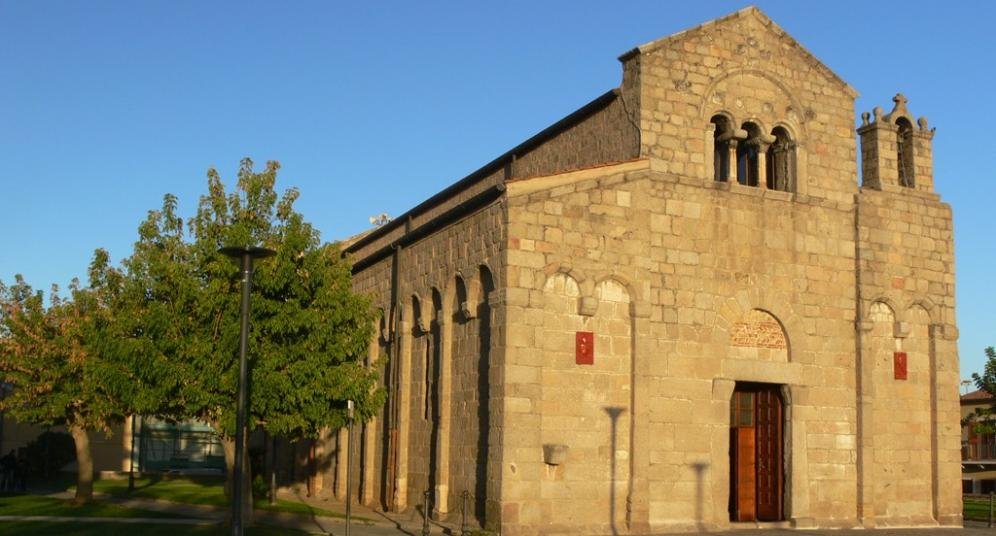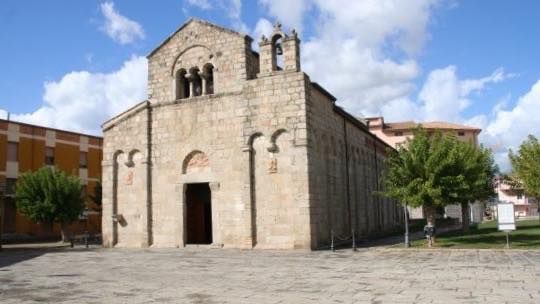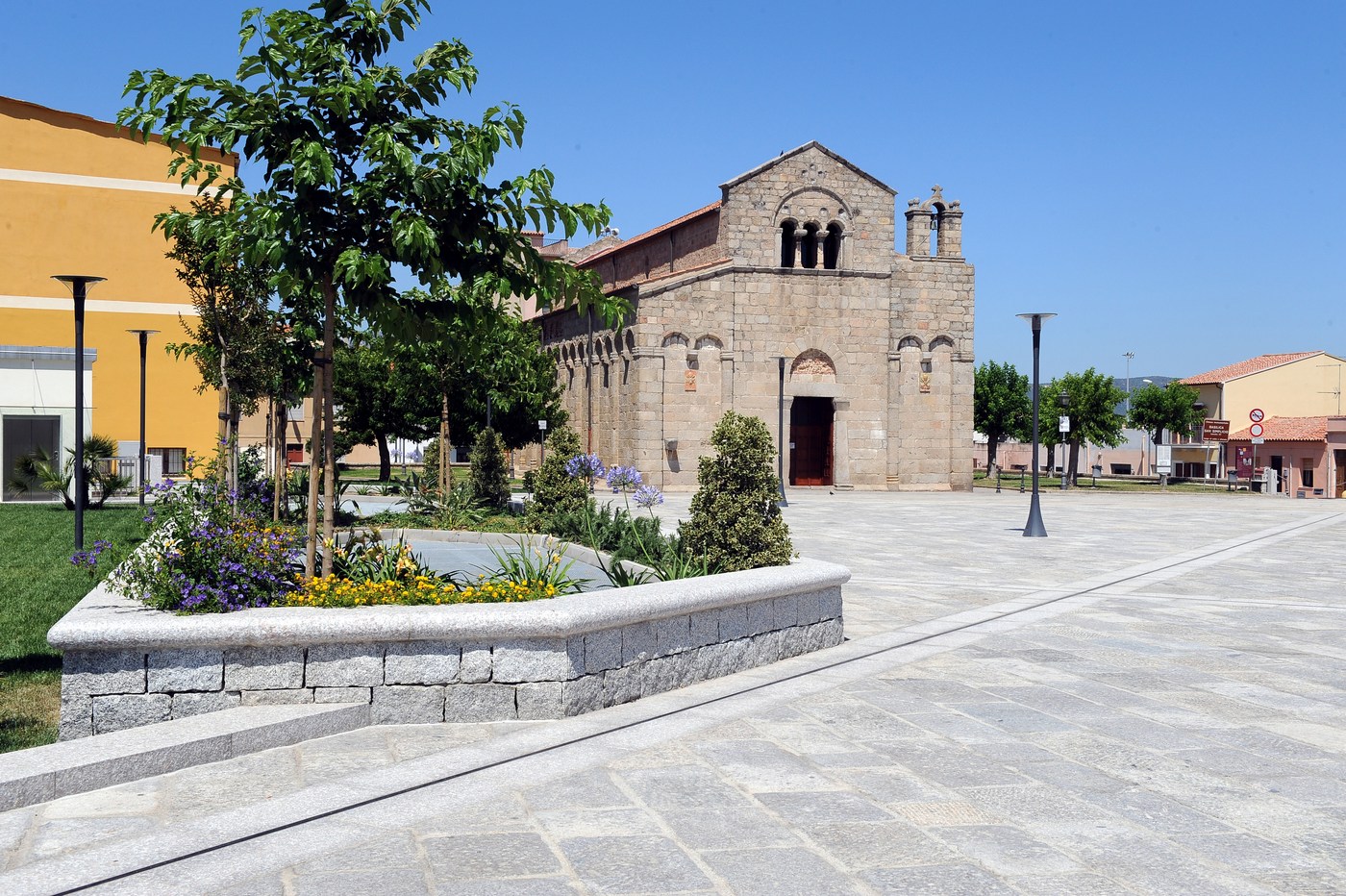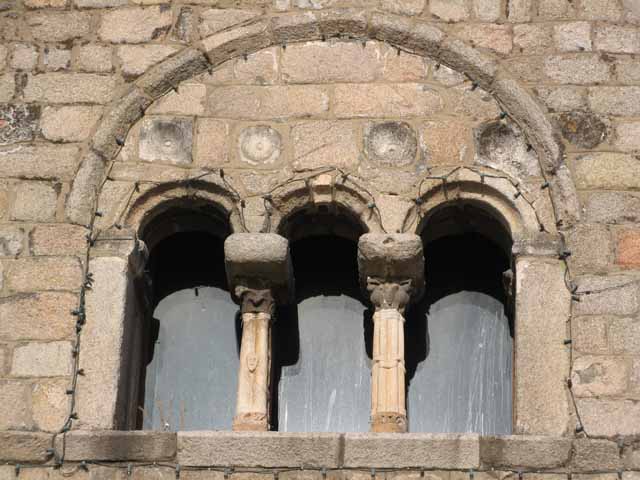


The Minor Basilica of San Simplicio (Museum Civitatense) is located on the top of a hill opposite the Olbia railway station.

It can be reached easily by completely covering Corso Umberto until the railway crossing and turning right into Via San Simplicio where it stands majestically.

To this day there is no official document that certifies the exact date of construction but it is assumed that the foundation of the church took place between the end of the year 1000 and the first decades of 1100 in the area formerly defined as the cemetery. Sancti Simplicii.
In fact, the area is spread over a half hill, has numerous burials and some wells that span a span of time ranging from the Orientalizing period (about 700 BC) to the Early Middle Ages.

The first documented building seems to be a Roman era temple dedicated to Ceres or Demeter linked to the figure of Acte, the lover of the emperor Nero.
Probably from the ruins of this temple and from the use of the square blocks of the ancient walls, the builders, using a kiln for hydraulic lime, built the original church.

The first construction was to consist of large granite blocks set up to create a hall with three naves covered by wooden trusses.
Perhaps due to a structural problem or a failure in the vault of the northern nave, the builders used bricks to redo the roof and raise the church.

Several studies so far seem to agree in hypothesizing that the first church was smaller than the current basilica and that it was between the apse and the second pair of internal pillars.
The same scholars agree that, between the lengthening of the church and the current facade, the workers completed the works by the end of 1100. The basilica measures 33 meters X 13 meters and and is about 12 meters high, the space the interior is divided into two aisles and a higher central nave, as you can see by observing the facade.

The space between the naves is divided between three pairs of columns alternating with three pairs of quadrangular pillars.
The capitals above the columns show classical, animal and human decorations which, together with the external decorations, recall the Tuscan and Lombard art of the time. The apse was originally frescoed as well as the right side where the organ is now located.

The exterior of the church is characterized by a "plinth" along the entire perimeter that stops regularly at the base of the pilasters. On the southern side we note the presence of two Roman stones which form the basis of the first and second pilaster strips.
In the apse, oriented to the west, a single lancet window opens centrally to illuminate the church at sunset while the facade, oriented to the east, is divided into three sectors. The central part of the façade shows an entrance crowned by a raised sixth arch and even higher up there is a large three-light window divided by two pillars.
The highest part of the facade is decorated with a rhombus of four basins and a row of four others which, probably in antiquity, were filled with majolica. The right and left sectors are decorated with some white marble tiles but the prominent element is a marble slab probably in the Lombard style with a human figure and two animals sculpted. Finally in the lower left sector.

A whole corbel and a broken one emerge from the facade on which it is assumed that a sarcophagus could rest, as in the church of San Pantaleo di Dolianova or the architrave from the ancient temple of Ceres now located in Pisa.
In the long side to the south, there is an entrance that was formerly used as a Holy door. The main role of the Basilica concerns the cult of the ancient Martyrs: Simplicio, Fiorenzo, Rosola and Diocleziano, probably among the first Christians killed in Sardinia by the Emperor Diocletian.
The presence of the relics and blood of the Martyr, kept under the altar, are still the destination of the faithful who since ancient times have witnessed faith in God and in his disciple Simplicius.
Basilica of San Simplicio - Museum Civitatense
Address: Via Fausto Noce, 55, 07026
Phone: 3456328150
Site:
https://www.museumtempioampurias.it/index.php/sedi-museali/item/392-civitatense-museum-olbia-ot/Location inserted by
Marcello Cabriolu